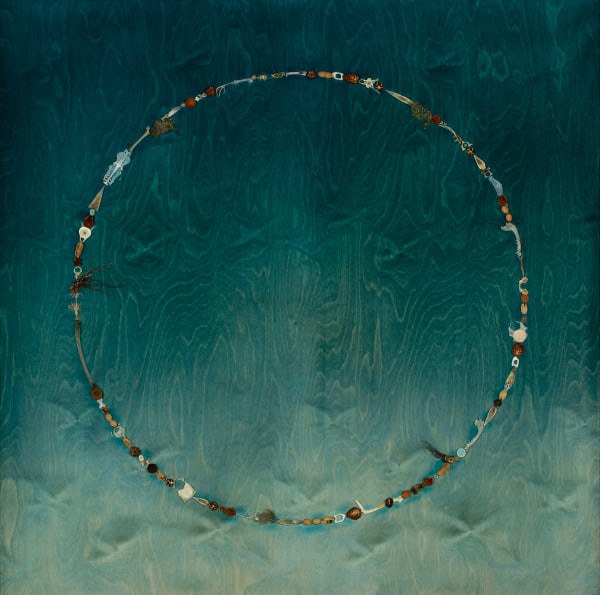Past
-

40 Year Anniversary Exhibition
Shaping a Life of Curiosity March 1 - May 31, 2025 In the spring gallery season of 2025, Lisa Sette Gallery blazes into its fourth decade of exhibiting exhilarating new art, helping to shape the cultural character of the city, and gathering community around aesthetic and philosophical experimentation. Lisa Sette Gallery's 40 Year Anniversary Exhibition: Shaping a Life of Curiosity will celebrate these transformations and more to come, as the gallery presents a template for moving fearlessly and creatively into the complex new landscape of the 21st Century. Read more -

Mayme Kratz
Sleeping in the Forest January 4 - February 22, 2025 In January 2025, Lisa Sette Gallery will begin its 40th year with an exhibition of work by venerated Phoenix artist Mayme Kratz, whose luminous pieces have come to epitomize the transformational nature of Lisa Sette Gallery’s commitment to its artists and to the work of revealing new truths about human creativity. Mayme Kratz encases found organic objects in cast resin forms, arranging each precious and often tiny component into breathtaking formations that may resemble expanding galaxies, spreading forests, billowing grasses, or microscopic organisms. Read more -

Grand Canyon: From Dreams to Memory
October 5 - December 28, 2024 Beyond the abstract boundaries of citizenship or residency, artists featured in Grand Canyon: From Dreams to Memory depict their experiences of this vast geological chasm through global backgrounds and diverse landscapes, from the new aesthetics of contemporary identity to timeless spiritual and planetary connections. Seven artists from six countries comprise the exhibition: Enrique Chagoya (Mexico), Tseng Kwong Chi (Hong Kong), Binh Danh (Vietnam), Carlos Estévez (Cuba), Siri Devi Khandavilli (India), Arno Rafael Minkkinen (Finland), and Reynier Leyva Novo (Cuba). Read more -

Summer
Group Exhibition June 1 - September 28, 2024 Artists include: Andy Burgess, Enrique Chagoya, Sonya Clark, Claudio Dicochea, Ben Durham, Angela Ellsworth, Shaunté Glover, Timothy Horn, Mark Klett, Michael Koerner, Mayme Kratz, Carrie Marill, Hunt Rettig, Ato Ribeiro, Ariana Page Russell, Benjamin Timpson, and Xawery Wolski Read more
-

Transcendent Geometries
Ato Ribeiro, Carrie Marill, and Andy Burgess March 2 - May 25, 2024 In a time dominated by machine algorithms, a return to patterns made by human hands and touched by human bodies can produce transcendent geometries, reminding us of our origins as embodied and sensuous beings. Ato Ribeiro , Carrie Marill , and Andy Burgess work in diverse media, yet each artist... Read more -

Shadow Passes, Light Remains
Binh Danh, Michael Koerner, and Benjamin Timpson January 13 - February 24, 2024 In the peculiar alchemy of photography, fleeting configurations of light and shadow are transformed into images and objects, capturing a moment, a landscape, a life. In the present moment, when images proliferate and their meanings multiply into an infinity of implications, the experimental photographic works of Michael Koerner and Binh... Read more -

The Moon is a Lantern
October 14, 2023 - January 6, 2024 In recent group shows including Subversive White , Temporary in Nature , and Wear Your Love Like Heaven , Lisa Sette Gallery takes on the challenge of envisioning the contemporary art space as a cultural conscience of the city, a place where creative experimentation sets a template for human and... Read more








